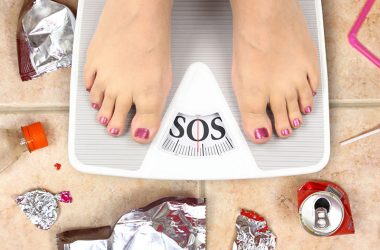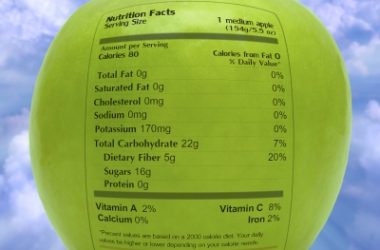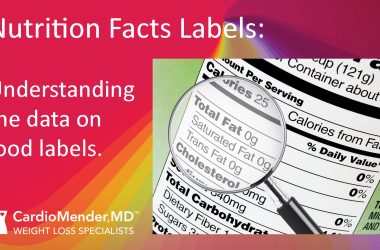Emotions, Hormones, Neurotransmitters and Holidays
 The holidays can bring out the best and worst of our emotions. From the pure relief of having well-deserved time off, to the elevated financial stressors, holiday deadlines, family issues and nostalgic thoughts, the resulting emotional response is different for each of us. The emotions that we feel are not only brought on by outside stressors or situations, but are also the result of internal biological reactions that many of us don’t understand or are completely unaware of. Our emotions are affected by a mixture of our environment psycho-social factors, and by our body’s production of hormones and brain neurotransmitters, which are triggered knowingly and unknowingly throughout our lives.
The holidays can bring out the best and worst of our emotions. From the pure relief of having well-deserved time off, to the elevated financial stressors, holiday deadlines, family issues and nostalgic thoughts, the resulting emotional response is different for each of us. The emotions that we feel are not only brought on by outside stressors or situations, but are also the result of internal biological reactions that many of us don’t understand or are completely unaware of. Our emotions are affected by a mixture of our environment psycho-social factors, and by our body’s production of hormones and brain neurotransmitters, which are triggered knowingly and unknowingly throughout our lives.
Hormones and Neurotransmitters and their Effects
When we experience emotions, our bodies produce a variety of hormones and neurotransmitters. These include dopamine, serotonin, norepinephrine and cortisol.
Dopamine is a neurotransmitter which affects motivation, mood, pleasure seeking behavior, memory, and even body movement. Reduced levels of dopamine are associated with a negative impact on both motivation and mood.
Serotonin is thought to help modulate mood, pleasure, behavior, hunger, digestion, sleep, memory, and libido and sexual function. Low levels of serotonin are associated with depression, craving sweets and carbohydrates, impaired sleep, memory issues, anxiety and low self-esteem. However, increased levels of serotonin are associated with reduced libido and impaired sexual function.
Norepinephrine is both a hormone and neurotransmitter. It is released during stress or when our body senses danger. Its release heightens our awareness of our surroundings and gets our body ready to deal with a perceived threat with a fight or flight response.
Cortisol is a hormone that is released during stress. It helps regulate metabolism, blood sugar, sodium, fluid balance and inflammation; its level rises in the early morning hours causing us to wake-up. High levels impair insulin function resulting in high blood sugars, cause sodium retention, increase blood pressure and impaired sleep.
Anticipation, the Holidays and Reflection:
 Holidays can be a major source of dopamine release during positive moments resulting in a very pleasurable experience. During our anticipation of the holidays and our reflection of our past holiday experiences, our emotions can go into overdrive. Both the anticipation and our reflection of memories result in the production of a combination of these hormones and neurotransmitters that can have a profound effect on our emotions and how we experience life. Stress, when present, can increase norepinephrine and cortisol release which can further exacerbate stress and anxiety leading to more norepinephrine and cortisol production, setting off a vicious cycle. Not only can this trigger all kinds of emotions within us but can affect our relationships with family and friends. This stress can cause real harm to our bodies over time, contributing to the development of hypertension, mood and sleep disorders.
Holidays can be a major source of dopamine release during positive moments resulting in a very pleasurable experience. During our anticipation of the holidays and our reflection of our past holiday experiences, our emotions can go into overdrive. Both the anticipation and our reflection of memories result in the production of a combination of these hormones and neurotransmitters that can have a profound effect on our emotions and how we experience life. Stress, when present, can increase norepinephrine and cortisol release which can further exacerbate stress and anxiety leading to more norepinephrine and cortisol production, setting off a vicious cycle. Not only can this trigger all kinds of emotions within us but can affect our relationships with family and friends. This stress can cause real harm to our bodies over time, contributing to the development of hypertension, mood and sleep disorders.
The good news is that there are ways to potentially ease the stress and the emotional swings and help modulate the reactive hormones and neurotransmitters to mitigate against undesirable emotions, holiday stress and the associated stress eating.
Eating Habits
The holiday season, with all its stressors and temptation of food all around us, frequently leads to overindulging and often regret. Maintaining a healthy balance of foods during the holidays can avoid various issues, including weight gain, depression and anxiety. While we all like to enjoy indulgent food this time of year, a realistic balance can make a huge difference. By employing mindful eating, we can focus on eating a balance of whole foods including lean proteins, fibrous vegetables and low glycemic fruits. Eating lean protein and moderated amounts of healthy fats can help us feel satisfied from our meal. Eating cold water fish, such as salmon, mackerel and herring, provide a good source of lean protein in addition to essential omega-3 fatty acids, which have been shown in some people to help with depression. Omega-3s have also been shown to reduce inflammation and provide cardiovascular benefits.
Exercise
 For many of us, the holidays may set the stage for and invite eating more treats and indulgent foods than usual, therefore a consideration may be to visit the local gym or lace up those running shoes a few more times a week during December and January. Since hormones have a massive effect on our mental, physical and emotional well-being, it’s important to know that balancing hormones can be done in many ways, including through exercise. Regular exercise, especially during the stressful holidays, can boost muscle maintaining hormones, increase strength, reduce stress and improve overall quality of life.
For many of us, the holidays may set the stage for and invite eating more treats and indulgent foods than usual, therefore a consideration may be to visit the local gym or lace up those running shoes a few more times a week during December and January. Since hormones have a massive effect on our mental, physical and emotional well-being, it’s important to know that balancing hormones can be done in many ways, including through exercise. Regular exercise, especially during the stressful holidays, can boost muscle maintaining hormones, increase strength, reduce stress and improve overall quality of life.
Vitamins
While we ultimately recommend the advice of a doctor, many easy to access vitamins can work wonders for those dealing with the stresses of the holidays and everyday life. The absence of certain vitamins and minerals can impair metabolism and fat burning. B-vitamins in particular serve a critical role in metabolism and are critical to optimizing fat burning. Alpha-Lipoic Acid has been shown to improve glucose, metabolism and insulin functionality when insulin resistance is present; thus providing a more favorable environment to burn fat and optimize metabolism. Enjoying a Western lifestyle and diet is generally associated with eating processed and refined foods that tend to be lacking in essential vitamins and minerals. By taking good quality vitamins and supplements, in addition to eating more whole foods rich in fruits and vegetables, can help offset these deficiencies and help optimize metabolism and maintain good health.
Get Quality Sleep
While the holidays can result is lost sleep due to stress, wrapping presents, holiday parties, new movie premieres and dozens of other reasons, it’s important to get quality sleep to maintain optimal health. Not only does sleep regulate critical hormones such as cortisol, but the proper amount of sleep, 7 to 8 hours per day, can help regulate emotional issues such as depression, anxiety and exhaustion.
Meditation
Having a regular practice of deep breathing and meditation has been shown to reduce stress and stress hormones, lower blood pressure, improve general and immune health and the overall quality of life. Simply pausing in a reactive emotionally charged situation and practicing slowed and controlled breathing also provides health benefits and may be the first step or entre to a regular practice of meditation.
While each of us are different, being mindful of our emotions, and how our hormones are tied in, can help us better cope with a stressful and busy holiday season. A mindful combination of sleep, healthy eating, exercise, meditation and even taking certain nutritional supplements can make a major difference for the 2019 holiday and beyond.
For inspiration and answers to questions you may have about leading a healthy lifestyle and the benefits of a variety of supplements, read previous blogs by CardioMender, MD Weight Loss Specialists at www.cardiomenderweightloss.com/category/weight-loss-articles/.
References:
https://moodymonth.com/articles/how-do-vitamins-affect-your-hormones-and-mood (Moody Month: How do vitamins affect your hormones and mood?)
https://science.howstuffworks.com/life/inside-the-mind/human-brain/5-ways-your-brain-influences-your-emotions2.htm (How stuff works: 5 Ways Your Brain Influences Your Emotions)
https://www.medicalnewstoday.com/articles/324031.php (Medical News Today: How Can I Balance My Hormones?)
https://www.ncbi.nlm.nih.gov/pmc/articles/PMC5481805/
Integr Med Res. 2015 Sep; 4(3): 132–141.
Published online 2015 Jul 15. doi: 10.1016/j.imr.2015.07.003
PMCID: PMC5481805 PMID: 28664119
Omega-3 fatty acids and the treatment of depression: a review of scientific evidence
https://www.medicalnewstoday.com/articles/232248.php
https://www.healthline.com/health/dopamine-effects – definition, Nov 5, 2019
For inspiration and answers to questions about leading a healthy lifestyle and different types of supplements, read previous blogs by CardioMender, MD Weight Loss Specialists at www.cardiomenderweightloss.com/category/weight-loss-articles/.






